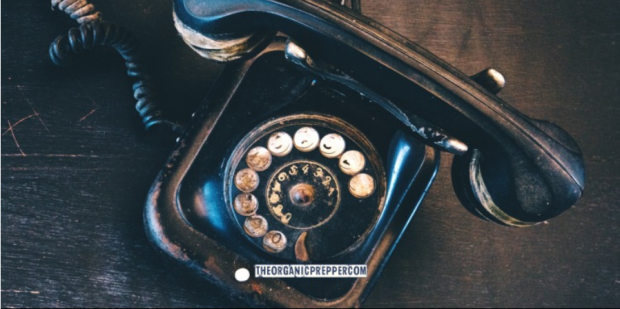
Breaking News
 "A.G.E.S. Fall Conference" on BrightU: How to spot "imposter" farmers and hidden
"A.G.E.S. Fall Conference" on BrightU: How to spot "imposter" farmers and hidden
 Endless Hot Water is the Smartest Spring Upgrade for Your RV
Endless Hot Water is the Smartest Spring Upgrade for Your RV
 Epstein's Friend Howard Lutnik EXPOSED
Epstein's Friend Howard Lutnik EXPOSED
Top Tech News
 New Spray-on Powder Instantly Seals Life-Threatening Wounds in Battle or During Disasters
New Spray-on Powder Instantly Seals Life-Threatening Wounds in Battle or During Disasters
 AI-enhanced stethoscope excels at listening to our hearts
AI-enhanced stethoscope excels at listening to our hearts
 Flame-treated sunscreen keeps the zinc but cuts the smeary white look
Flame-treated sunscreen keeps the zinc but cuts the smeary white look
 Display hub adds three more screens powered through single USB port
Display hub adds three more screens powered through single USB port
 We Finally Know How Fast The Tesla Semi Will Charge: Very, Very Fast
We Finally Know How Fast The Tesla Semi Will Charge: Very, Very Fast
 Drone-launching underwater drone hitches a ride on ship and sub hulls
Drone-launching underwater drone hitches a ride on ship and sub hulls
 Humanoid Robots Get "Brains" As Dual-Use Fears Mount
Humanoid Robots Get "Brains" As Dual-Use Fears Mount
 SpaceX Authorized to Increase High Speed Internet Download Speeds 5X Through 2026
SpaceX Authorized to Increase High Speed Internet Download Speeds 5X Through 2026
 Space AI is the Key to the Technological Singularity
Space AI is the Key to the Technological Singularity
 Velocitor X-1 eVTOL could be beating the traffic in just a year
Velocitor X-1 eVTOL could be beating the traffic in just a year
How to Get Accurate Information After SHTF

If this mess of the past two years has taught me anything, it's that gathering accurate information matters. There is no way to accurately predict the exact scope of a disaster months in advance. There is no means to accurately predict how quickly variables will change post-disaster. This is why the prepper needs accurate information. As the world changes around him, he needs to be aware of how it is doing so.
Information is what allows the prepper to adapt to his environment.
Our first priority after disaster is to make sure our loved ones are alright. For sanity's sake, accurate information about the safety of loved ones is paramount. Even if we can't communicate with our family immediately post-SHTF, there is a large degree of peace of mind which comes from knowing the extent, precise location, and nature of the chaos that has just taken place.
However, this is where we face something of a catch-22. We need accurate information more after the SHTF than we ever have before, but the very nature of a SHTF event means communication infrastructure has likely been damaged, shut down, or overwhelmed.

 One Minute to Midnight
One Minute to Midnight


